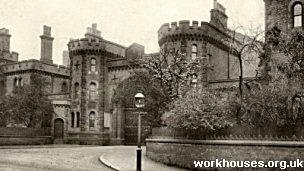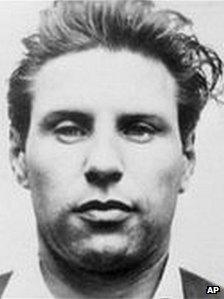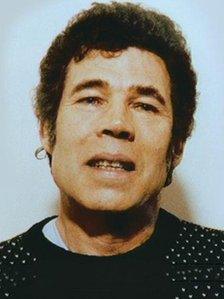The chequered past of Birmingham prison
- Published

HMP Birmingham was designed by Birmingham architect Daniel Hill and opened in 1848
In October 2011 HMP in Birmingham became the first publically managed prison in the UK to be privatised.
The jury is still out on the move to privatisation but it is the latest in a long line of firsts achieved by the prison which opened in the same month 163 years ago.
Soon afterwards, it became famous for the pioneering penal reforms introduced by its first governor, Capt Alexander Maconochie.
The Victoria County History records show the prison gained notoriety when Capt Maconochie was dismissed over his controversial penal reforms.

Charlie Wilson escaped from HMP Birmingham on 8 July in 1965
He experimented with a system of marks while serving with the navy in the Pacific, which embraced his notions of treating prisoners with dignity and respect and awarding them marks to encourage better future behaviour.
The records detail how his radical ideas were highly unpopular with the much stricter deputy governor and local magistrates and he was eventually dismissed.
A wave of suicides and attempted suicides followed at the prison in 1853, including the death of a child, which caused a public outcry and led to a public inquiry.
It found evidence of gross neglect and routine prisoner abuse that included starvation, excessive use of the strait-jacket and forcing prisoners to work a machine in their cells for no purposeful reason except to force them to complete hard labour.
If they failed to perform the task set, they would not be fed, the records show.
The governor and the surgeon were found guilty of abuse and Birmingham Gaol was transferred from the borough to the management of the Home Office in 1878.
The borough prison in Winson Green originally had about 320 cells for men, woman and juveniles and was designed by Birmingham architect Daniel Hill to resemble a Tudor fortress at the front.
Mr Hill also designed HMP Wandsworth, HMP Lewes and Warwick County Prison.
Great train robber
In modern times the prison has been used to house high security category B adult male prisoners.
Newman University College Birmingham historian Chris Upton said these included one of the Great train robbers Charlie Wilson, who escaped from HMP Birmingham on 8 July 1965. He was recaptured in Canada three years later.
The prison also held Fred West who was charged with the murders of 12 people found buried in the garden of his home in Gloucestershire.

Fred West was found hanged in his cell where he was awaiting trial
He was found hanged in his cell, external in 1995 and died during a lunch break despite being placed under close supervision as a vulnerable prisoner awaiting trial.
The prison service said it did not comment on individuals held at the prison, past or present.
It was chosen to be the first publically managed prison in the UK to be privatised because it had been performing poorly and did not offer value for money, the Ministry of Justice said.
The Justice Secretary Ken Clarke argued that privatisation would save money and improve the inmates' reoffending rates.
In its latest report the Independent Monitoring Board (IMB) prison watchdog said the transfer process from public management to private management by G4S took far longer than it should have and had contributed to low staff morale.
The Ministry of Justice said it would respond to the IMB report on HMP Birmingham at a later date.
Birmingham IMB chairman Barbara Bradbury said one of the main changes she had witnessed at the prison was the introduction of prisoners being allowed to wear their own clothes as opposed to standard prison issue clothing.
Another change she had observed was the installation of terminals on which inmates could check their bank accounts and organise prison visits from members of the public.
There were also plans to install phones in individual cells, she said.
It currently has capacity for 1,450 inmates and is one of 13 privately managed prisons in the UK. Eight other publicly managed prisons are due to follow in HMP Birmingham's footsteps and go through the market-testing process.
- Published21 November 2011
- Published21 October 2011
- Published1 July 2011
- Published31 March 2011
- Published31 March 2011